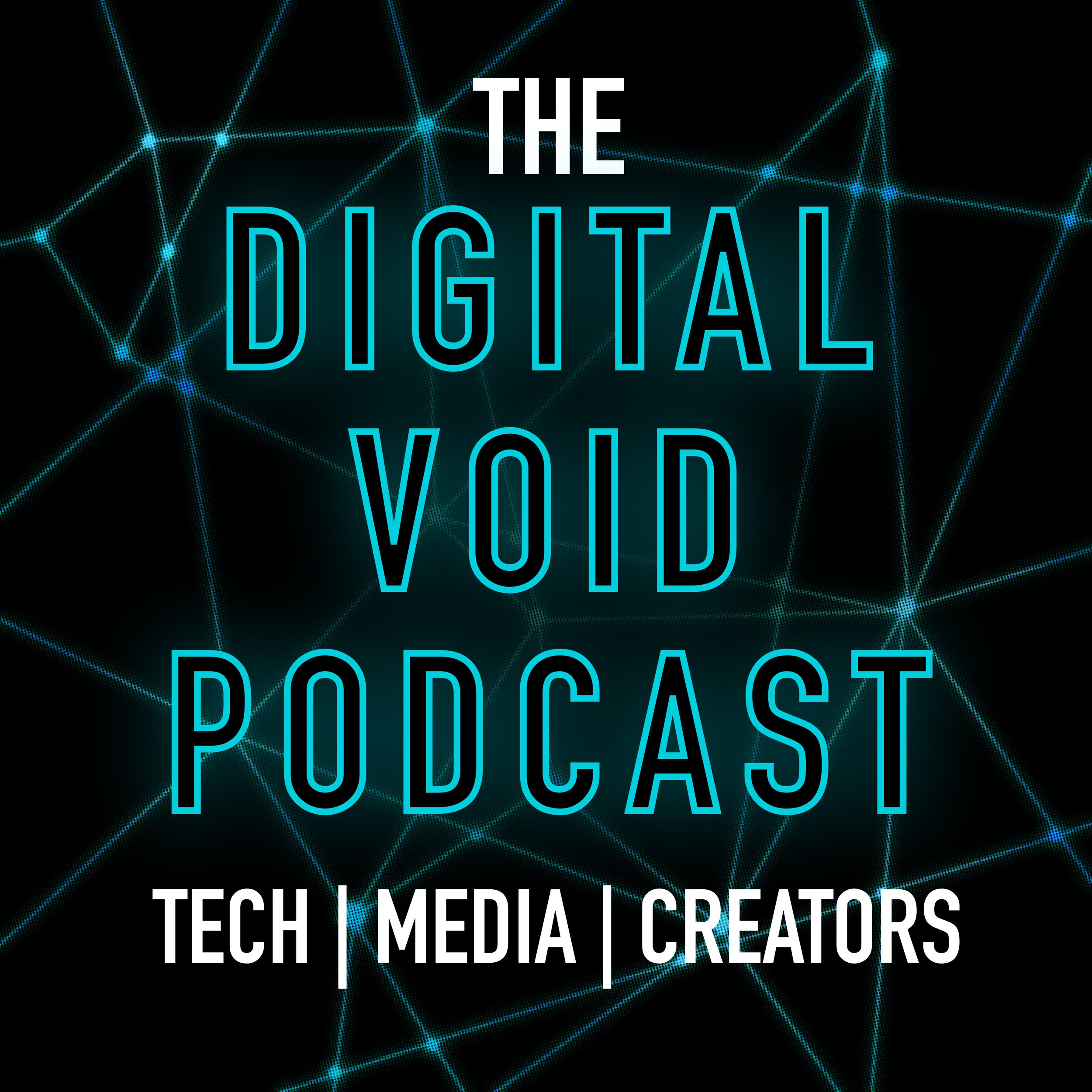The Digital Void Podcast
The Digital Void Podcast is a weekly exploration of digital culture, media, technology, and memes, featuring critical and empowering conversations with experts at the forefront of our digital transformation. Hosted by Dr. Jamie Cohen and Josh Chapdelaine.
Subscribe to The Digital Void Podcast wherever you get your podcasts!


How does an Instagram Account’s Digital Activism Help NOLA’s Roads? w/ Alex Turvy
How does an activist Instagram account help bring attention - and change - to New Orleans’ streets?
On this week’s episode, we welcome Digital Void collaborator, PhD student, and researcher Alex Turvy to discuss Look at This Fuckin’ Street: an Instagram account that highlights hazardous roads, potholes, and crumbling infrastructure to put pressure on city government to improve long-ignored conditions.

Elon Musk, Twitter, and a Healthy Social Media Future w/ Bridget Todd
Creator and host of the award-winning podcast There Are No Girls on the Internet Bridget Todd explains where people can go to find alternatives to mainstream social media platforms, her vision for a more equitable social media future, and how Musk's Twitter purchase stands to reshape the way we communicate on the platform.

Rabbits w/ Terry Miles
This week, we're joined by author of Rabbits, CEO of Minnow Beats Whale, and co-creator of The Black Tapes, Terry Miles.

Dark Brandon
On this week's episode, Jamie and Josh discuss the history and context behind Dark Brandon memes. How did Joe Biden become featured in memes with laser eyes and dark aesthetics? How we can make sense of the trend's influence on culture and media narratives? What is its true influence?

An Immersive History: AR, VR, and Zuckerberg's Hopes for Cambria
What can the history of virtual reality development teach us about its path forward?
On this week's episode, Jamie and Josh look back 30 years to the first attempt to mainstream commercial virtual reality. Why didn't haptics and headsets earn mass adoption?
Further, they discuss the other uses for the metaverse and virtual reality. What do corporations stand to gain if VR goes mainstream? What are the risks associated with a centralized VR ecosystem?

Memes, Algospeak, and Accessibility
How can memes encoded with aesthetics, nuance, and meta text become accessible to everyone?
This week, Jamie and Josh discuss memes, algospeak, and access: How can meme creators and platforms utilize alt-text to help the vision impaired? Why is alt-text essential to help everyone access and understand the rapidly evolving memetic moment?

How to Talk with an Artificial Intelligence w/ Reed Berkowitz
How can humans determine if an Artificial Intelligence is sentient when sentience is what AI is designed to imitate?
This week, we’re joined by Artificial Intelligence games designer Reed Berkowitz.
Berkowitz discusses former Google Responsible AI team member Blake Lemoine’s claim that Google’s AI chatbot LaMDA is sentient. What made Lemoine believe this? How can we come to understand Lemoine’s belief?

Illusions of Control: Aesthetics, Nostalgia, and Meme Culture w/ Grafton Tanner
How can nostalgia inspire memes that motivate and mobilize communities?
Last week, Jamie and Josh discussed how the term “meme culture” is in jeopardy of being co-opted by extremists. This week, they welcome back author Grafton Tanner to take a deeper dive.

We Need to Talk About Meme Culture
We need to talk about meme culture.
How are the aesthetics and vibes of memes turning into an action language? Jamie and Josh explore the ways memes inspire action: From #Gentleminions to extremist movements.
Further, they explore how people outside of in-group communities can understand intent when nothing is explicitly being said. Is the term meme culture in jeopardy of being entirely co-opted?

The Road to Nowhere w/ Paris Marx
Paris Marx, author of The Road to Nowhere: What Silicon Valley Gets Wrong About the Future of Transportation and Host of Tech Won’t Save Us dives into the reality underpinning the promises made by Silicon Valley entrepreneurs like Elon Musk. Why can’t electric vehicles address the problems created by the automobile industry?

Memes, Marvelization, and the Creative Surplus of War
Jamie and Josh dive into a brief history of how war and conflict play out in cyberspace, ranging from 9/11 and Syria to how Ukraine is using Twitter in its fight against Russia.

Jamie Cohen: “Should Wikipedia Classify NFTs as Art?”
Jamie Cohen dives into the debate Wikipedia editors are having about how artworks are categorized on the website — and what it means for NFTs.

Ep. 46: Rick Paulas “The Palmer Hotel”
Author of The Palmer Hotel Rick Paulas shares how his book became a meme through his reply guy tweets, how his Twitter ban created a Barbara Streisand effect for his book, and why Twitter should be entirely eradicated if humans stand a chance for a better future.

Ep. 45: Rachel E. Greenspan
Insider digital culture editor and writer Rachel E. Greenspan explores her career path to the disinformation beat, how the insurrection showed us that it's too dangerous to ignore what happens online, and right-wing media's continued attacks on Taylor Lorenz and other journalists.

Ep. 44: Grafton Tanner “The Hours Have Lost Their Clock”
Author of The Hours Have Lost Their Clock Grafton Tanner explains how nostalgia is the emotion of our time. Tanner explores nostalgia from its roots as an illness that was once considered a cause of death to how nostalgia is affected by climate change and species extinction. From endless sequels and franchises to early-pandemic nostalgia, Tanner provides a detailed overview of nostalgia — and shares how we can be more mindful of its existence.

Ep. 43: Moises Mendez II
Freelance culture writer Moises Mendez II discusses the path he took to become a journalist, controversies surrounding queerbaiting in mainstream culture, the importance of TikTok Star Tally Dilbert's influence on young Afro-Latinos, and the connection between Gabby Petito and Couch Guy. Plus, Mendez reveals his favorite meme of all-time.

Ep. 42: Lilly Chin “How to Survive a Public Faming”
2017 College Jeopardy winner, author of How to Survive a Public Faming: “Understanding “The Spiciest Memelord” via the Temporal Dynamics of Involuntary Celebrification and graduate student at MIT Lilly Chin shares the story of how she became "The Spiciest Memelord", the structural issues and lack of institutional support associated with overnight fame, and strategies to properly respond to online harassment and trolls.

Ep. 41: Idil Galip “Meme Studies Research Network”
Founder of the Meme Studies Research Network (MSRN) and doctoral researcher in sociology Idil Galip explores how she started an international and interdisciplinary research network for scholars who study memes to collaborate and organize.

Ep. 40: Chris Stokel-Walker “TikTok Boom”
Author of TikTok Boom and journalist Chris Stokel-Walker explores the strategy behind TikTok’s explosive rise in the west, the differences between Silicon Valley and Chinese technology, and how the features of TikTok are designed to mirror people’s performances back onto themselves, allowing them to feel like they are part of a community.



